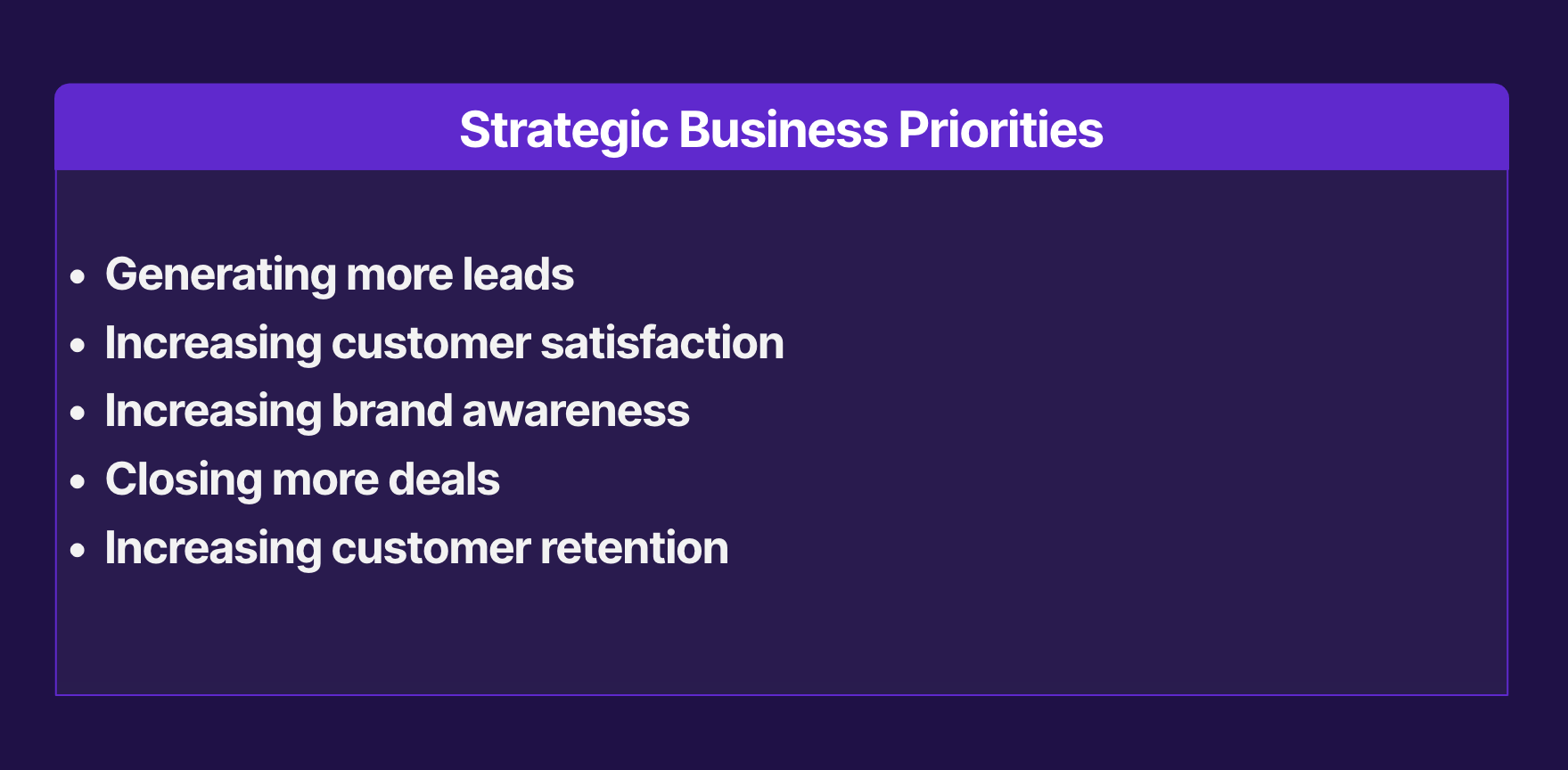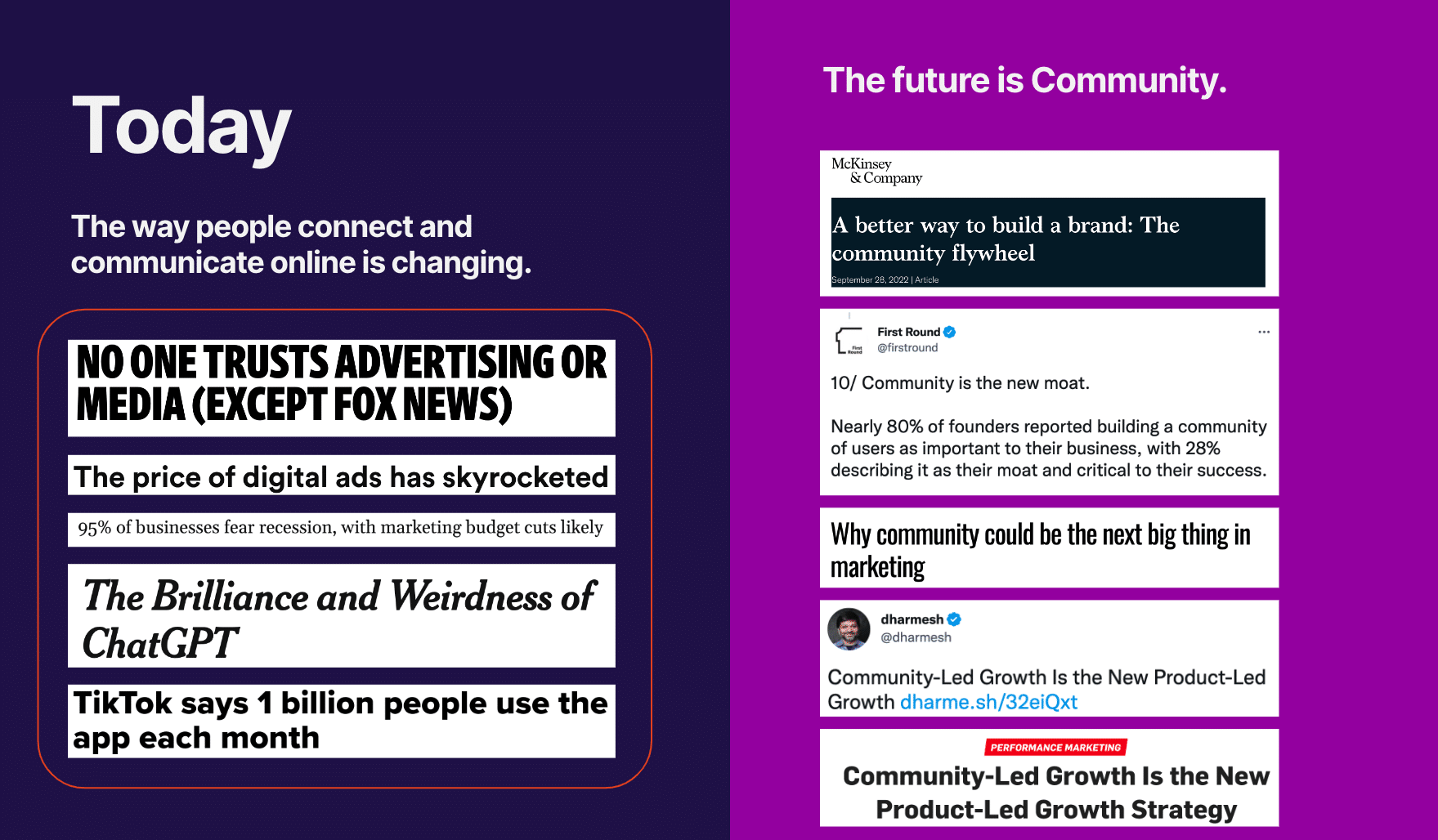Events have huge potential as strategic assets, capable of driving meaningful business outcomes and building deep connections with audiences. Yet, despite their transformative power, events often find themselves relegated to a secondary role within organizations, viewed as logistical endeavors rather than integral components of the overarching business strategy. This disparity underscores a significant gap between the expertise of event marketers and their ability to wield strategic influence within their organizations.
If event marketers aspire to drive high-impact events that align with their organization’s strategic goals and secure funding for future initiatives, they have to evolve their approach.
Here’s how event marketers can turn themselves into strategic architects in their organization:
1. Change Your Title
Repositioning job titles is a critical first step in signaling the strategic importance of event marketers within organizations. Advocate for titles such as:
- “Strategic Event Manager”
- “Event Strategist”
- “Director of Event Strategy”
These titles reflect the strategic nature of the role and align with the overarching business objectives.
2. Define the Strategic Importance of Events
Events should not be viewed as isolated endeavors but rather as integral components of the organization’s broader strategic roadmap. To achieve this alignment:
- Conduct a Strategic Assessment: Understand your organization’s overarching goals and objectives, identifying areas where events can contribute directly to achieving these objectives.
- Develop Tailored Event Strategies: Tailor each event strategy to align with specific business objectives, whether it’s driving revenue, enhancing brand awareness, or fostering customer relationships.
- Establish Clear KPIs: Define measurable Key Performance Indicators (KPIs) for each event, aligned with broader business objectives, to track and evaluate success.

3. Find Your Executive Champion
Identify an executive champion within the organization who understands the strategic value of events and can advocate for budget allocation and support. Collaborate with this ally to:
- Clearly articulate how events investment impacts their objectives
- Present to executive stakeholders
- Help secure the resources needed to drive strategic event initiatives forward
4. Use the right technology stack
As an event marketer, your ability to execute your strategy can only be as powerful as the technology that you use to power your event experiences. There are so many technology platforms on the market for events that it can become overwhelming to consider which is best for your use case.
- Find the Best Strategists: Identify which tech provider actually connects you to the best event strategist. These reps, whether AEs or CSMs, can act as an extension of your strategy team if they do their job well. They will help you get the most out of your purchase.
- Look for a Complete Solution: As an event marketer, flexibility is a job requirement. And you want technology that can be as agile as you are. You don’t need an all-in-one solution, but rather a product that will empower you to build the right experience for your company, use case and audience through powerful integrations. For example, RingCentral Events is our event tech
5. Quantify Impact
Quantifying the impact of events is essential for demonstrating their value and securing buy-in from stakeholders. To quantify impact:
- Implement Robust Tracking Mechanisms: Utilize event management software like RingCentral Events and analytics tools to track attendee interactions, engagement levels, and post-event actions.
- Calculate Financial ROI: Compare event costs to revenue generated, considering both direct and indirect revenue streams, to assess the financial impact of events.
- Capture Qualitative Feedback: Gather qualitative feedback from attendees, sponsors, and stakeholders to complement quantitative data, providing insights into attendee satisfaction and overall event experience.
6. Educate Stakeholders
Educating stakeholders about the strategic value of events is essential for garnering support and investment. To educate stakeholders:
- Craft a Compelling Narrative: Develop a narrative that articulates the role of events in achieving strategic business objectives, supported by success stories and real-world examples.
- Tailor Communication: Customize communication strategies to resonate with different stakeholder groups, highlighting how events contribute to their specific goals and objectives.
- Provide Ongoing Education: Foster a culture of continuous learning and education around event marketing within the organization, offering workshops, training sessions, or lunch-and-learn events.
7. Position Events as Community-Builders

The way people connect and communicate online is changing, the future of which will be through communities. Events are a key component in building your brand and connecting with your customers.
Community is an unbundled event. As you think about some of your key events & conferences for the year, think about those key touchpoints in building closer relationships, and in addition how they fit amongst other marketing activities like large conferences, webinars, streams, customer meetings, year-round content, and more.
By implementing these strategies, event marketers can elevate their role within their organizations and position themselves as strategic architects that have a significant impact on business goals. By driving events that align with strategic goals and demonstrate measurable impact, event marketers can secure funding for future initiatives and drive long-term business success.
Updated Mar 13, 2025











